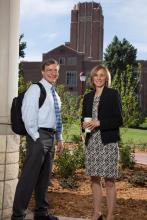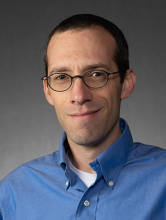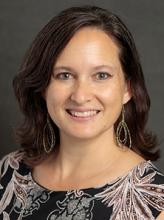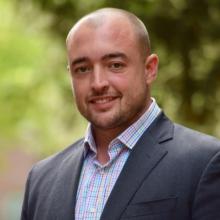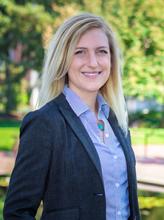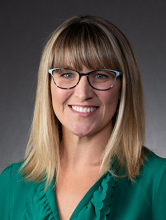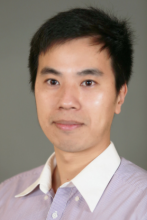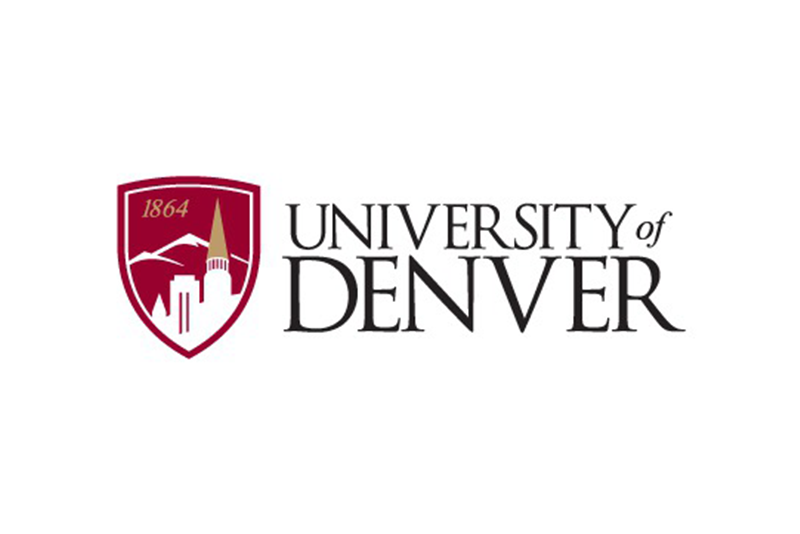Faculty and Staff Grants from June 2020

Congratulations to the following faculty and staff members who received grants and awards in June 2020:
Douglas Clements, professor and Kennedy Endowed Chair in Early Childhood Learning at the Morgridge College of Education; and co-executive director of the Marsico Institute of Early Learning and Literacy
Julie Sarama, professor and Kennedy Endowed Chair in Innovative Learning Technologies at the Morgridge College of Education and co-executive director of the Marsico Institute of Early Learning and Literacy
Crystal Day-Hess, assistant director at the Marsico Institute for Early Learning and Literacy
- Grant from the Marzano Research Laboratory, subaward from the Institute of Educational Science, for "REL: IES Math Practice Guide Videos"
- Project abstract: The Marsico Institute will provide services to support work in the states of Colorado, Kansas, Missouri, Nebraska, North Dakota, South Dakota and Wyoming. The work will include two videos that support the Early Childhood Research Alliance by providing additional resources to support early math instruction. The institute will also support the preparation of two video scripts and storyboards and supporting the development of a video based off the script and storyboard.
Brette Garner, assistant professor in the Department of Teaching and Learning Sciences at the Morgridge College of Education
- Grant from Generation Schools Network Inc. for "East Central BOCES"
- Project abstract: In many urban and suburban schools, teachers' professional development (PD) is organized around professional learning communities, which are both common and effective for supporting instructional improvement. However, rural school teachers often have few — if any — content-area colleagues to collaborate with, as distance between schools in sparsely-populated areas makes it difficult for teachers to meet regularly. This study will seek to understand rural mathematics teachers' opportunities to learn through online and in-person PD in two regions of rural Colorado.
Jennifer Hoffman, associate professor in the Department of Physics and Astronomy at the College of Natural Sciences and Mathematics
- Grant from the National Science Foundation for "Collaborative Research: Mapping the Supernova Polarization Landscape"
- Project abstract: Supernova explosions are geometrically complex phenomena, whose aspherical structures cause variations in observed characteristics over time as the explosion evolves. Spectropolarimetry provides detailed three-dimensional information about these events that is unavailable with other methods. Using the Supernova Spectropolarimetry Project, which is the largest existing database of spectropolarimetric observations of supernovae, which this team created. This database allows us to carry out a larger-scale analysis. This will be a systematic empirical study combining observations and modeling to establish the fundamental, time-dependent spectropolarimetric features that characterize each supernova type.
Suzanne Kerns, research associate professor at the Graduate School of Social Work and executive director of the Center for Effective Interventions
- Grant from Snohomish County for "Multisystemic Therapy (MST) Quality Assurance and Training, Juvenile Court"
- Project abstract: GSSW's Center for Effective Interventions (CEI) will provide MST clinical support and training. CEI will provide program development for the new MST team, weekly MST telephone consultation for the MST clinical teams, consultations and up to four booster training sessions in each year of operation.
Andrei Kutateladze, dean of the College of Natural Sciences and Mathematics
- Grant from the National Science Foundation for "Complexity Building Approaches in Photoassisted Synthesis of Heterocycles"
- Project abstract: Photochemical reactions hold unparalleled promise for building complex carbo- and heterocyclic scaffolds, which offer expeditious access to difficult synthetic targets not accessible via ground state chemistry. In this project we will employ recently found reaction of triplet azaxylylenes, generated via the excited state intramolecular proton transfer (ESIPT) to develop new useful synthetic methodologies for cascade photoreactions leading to complex molecular architectures. Cascade reactions are one of the key strategies employed by nature, which are responsible for deceptive, awe-inspiring simplicity with which the most complex molecules are assembled.
Andrew Linshaw, associate professor in the Department of Mathematics at the College of Natural Sciences and Mathematics
- Grant from the Natural Science Foundation for "W-algebras and the Coset Construction"
- Project abstract: The proposed projects build on Linshaw's fundamental recent work and will significantly advance theory of vertex operator algebras (VOAs) as well as its applications in number theory and physics. In mathematics, a VOA is an algebraic structure that plays an important role in two-dimensional conformal field theory and string theory. The proposal to construct additional universal algebras of this kind will provide a powerful tool for finding and proving other families of coincidences among seemingly unrelated VOAs at special points.
Lena Lundgren, professor at the Graduate School of Social Work and executive director of the Cross-National Behavioral Health Laboratory
- Grant for "Education and Systemic Service Assessment Through Technology and Research (ESTR)"
Lisa Reyes Mason, incoming associate professor at the Graduate School of Social Work
- Grant from the University of Tennessee, subaward from the National Science Foundation, for "Overcoming Social and Technical Barriers for the Broad Adoption of Smart Stormwaters"
- Project abstract: To contend with the concerns regarding floods and weather-related fatalities, most communities across the U.S. maintain dedicated infrastructure (pipes, ponds, basins, wetland, etc.) to convey and treat water during storm events. Much of this stormwater infrastructure is approaching the end of its design life. Instead of building new and bigger stormwater infrastructure, which is cost prohibitive for many communities, it is possible to use the existing infrastructure more effectively. The goal of this proposal is to enable the next generation of smart and connected stormwater systems, which use sensors to anticipate changes in weather and urban landscape, adapt their operation using active flow controls (e.g. gates, valves, pumps).
Jonathan Moyer, assistant professor at the Josef Korbel School of International Studies and director of the Frederick S. Pardee Center for International Futures
- Grant for "Global Trends 2040"
- Grant for "Building Capacity Within UNDP to Support Country-Level Analysis of COVID-19"
Shannon Sliva, assistant professor at the Graduate School of Social Work and Jeffery Lin, associate professor in the Department of Sociology and Criminology at the College of Arts, Humanities and Social Sciences
- Grant from the Urban Institute for "Prison Innovation and Research Network"
- Project abstract: The Prison Research and Innovation Network (PRIN) is a consortium of states, each working to establish a model of transparency, accountability and innovation in one prison with the support of a research partner to enhance research and data capacity. The purpose of the PRIN is to better understand prison environments; enhance prisons' data collection capacities to promote transparency and accountability; and design, implement and evaluate evidence-based programs and policies to improve conditions for individuals incarcerated in and working in prisons.
Sarah Enos Watamura, co-director of the Stress Early Experience & Development Research Center, associate professor and chair of the Department of Psychology at the College of Arts, Humanities and Social Sciences
- Grant from Boston University, subaward from the National Institutes of Health, for "Advancing Engagement and Efficacy of Interventions for Co-Morbid Sleep and Behavior Problems in Young Children"
- Project abstract: In this project, the University of Denver will assume responsibility for recruitment and running of participant families in a randomized control trial evaluating whether behavior and sleep problems in toddlers are best remediated with existing interventions that target behavior management, sleep, or both.
Aaron Wikle, graduate student, and Robin Tinghitella, assistant professor in the Department of Biological Sciences at the Division of Natural Sciences and Mathematics
- Grant from the National Science Foundation for "Graduate Research Fellowship Program FY2020"
- The purpose of the NSF Graduate Research Fellowship Program (GRFP) is to help ensure the vitality and diversity of the scientific and engineering workforce of the United States. The program recognizes and supports outstanding graduate students who are pursuing full-time research-based master's and doctoral degrees in science, technology, engineering and mathematics (STEM) or in STEM education. The GRFP provides three years of support for the graduate education of individuals who have demonstrated their potential for significant research achievements in STEM or STEM education.
Zhihui Zhu, assistant professor in the Department of Electrical and Computer Engineering at the Ritchie School of Engineering and Computer Science
- Grant from the National Science Foundation for "Collaborative Research: CIF: Small: Deep Sparse Models: Algorithms and Analysis"
- Project abstract: Deep convolutional networks have boosted the development of machine learning tools with impressive success, often obtaining state-of-the-art performance in a variety of applications and across many different fields. Unfortunately, however, this impressive evolution in practical algorithms has not been accompanied by a sound theoretical understanding of the fundamental ideas behind these tools and their performance. This project aims to undertake a thorough study of multilayer sparse models, broadening the understanding of its related optimization and learning problems, and providing a rigorous study of its connection to deep learning approaches.
Barry Zink, professor in the Department of Physics and Astronomy at the College of Natural Sciences and Mathematics
- Grant from the National Science Foundation for "Collaborative Research: Field Control of Spin Transport in Antiferromagnet Perovskite Oxide Heterostructures"
- Project abstract: Heat generated by electrons flowing in nanoscale metallic circuits is the fundamental barrier to faster information processing. Development of novel materials and new information processing paradigms powered by these novel functional materials can remove this barrier and open new frontiers in computation. While antiferromagnetic oxides promise three potential paradigm-shifting advantages for oxide nanoelectronices, there are also challenges in demonstrating and characterizing spin transport in AFM oxides. We propose a transformative new direction in antiferromagnetic spin transport enabled by engineered AFM/FM oxide heterostructures.










